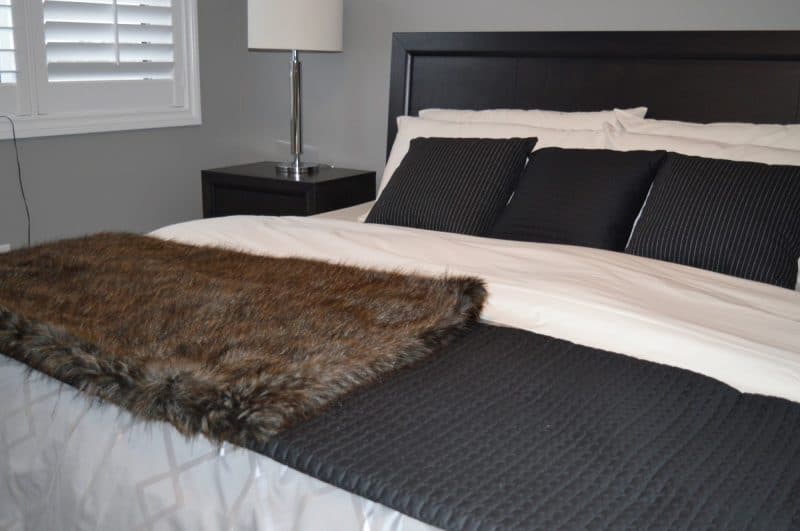What thickness of mattress should I get? The thickness of the mattress is associated with comfort, luxury, and good sleep.
Who doesn’t want to sleep in a comfy bed? That’s why it’s essential to consider the mattress’s height to sense if how comfortable that mattress can get.

Thickness dramatically affects your comfort. If you sleep on a too thick or too thin mattress, it might result in poor sleep, which impacts your health.
In this post, we will talk about the different factors you need to consider when choosing your new mattress’s thickness.
5 Factors to Consider For The Thickness Of A Mattress
Durable and comfortable mattresses are usually eight inches thick.
It includes a minimum requirement of a two-inch comfort layer and a six-inch base layer.
The rule of thumb for mattresses is that the thicker it is, the softer it would feel.
But other than that, there are still other factors to consider, which we will be discussing below.
So, what thickness of mattress should I get?
Factor #1. Sleeping position
Whatever your sleeping position may be, your sleep quality will be affected by the varying thickness levels of mattresses.
Particular sleeping positions require more cushioning, whereas other sleeping positions warrant more support.
Side sleeping
If you are a side sleeper, the best mattress for you has a thickness of 12 up to 14 inches.
It should also provide a great cushion to the hips and shoulders because these areas carry the entire body’s weight.
The plush comfort layers will provide the cushioning needed in those areas. It will also decrease pressure build-up.
Back Sleeping
Sleeping on your back – you would need a mattress that is about 10 to 12 inches thick for spinal support and prevent the misalignment of your spinal cord.
If you are experiencing muscle stiffness, neck ache, and back pain, then it can be a sign that you are sleeping on the wrong mattress.
As such, you need to have a mattress with a thinner comfort layer and thick base layer for it can support the natural curve of your back and prevent sinkage.
Stomach sleeping
Like back sleepers, stomach sleepers also need a mattress that is 10-inch thick, for this can reduce the risks of spinal misalignment.
The comfort layer should be thin so that it will provide you with a firmer sleeping surface.
It can also resist compression under your abdomen.
Combination sleeping
Generally, combination sleepers are more comfortable on a mattress with a 12-inch thickness and a medium feel.
If you are a combination sleeper, you would want a mattress that balances the softness and firmness.
That is because you tend to switch to the stomach, back, and side sleeping the entire night.
Factor #2. Body type
If you want to have a comfortable rest, you must opt for a mattress to support your body.
Your weight is the crucial determinant for making this choice.
Lightweight sleepers
Lighter people who weigh less than 130 lbs. are recommended to get a mattress that is at least 12-inch thick.
Such thickness tends to reduce aches and relieve pressure points since thicker comfort layers will follow their body shape.
Average sleepers
People having a weight ranging from 130 up to 230 lbs. can opt for mattresses between 10 to 12 inches.
Though this too shall depend on their sleeping position.
If you choose to buy a thick mattress, you should also check the materials used in making each of its layers.
By doing this, you will have a deeper understanding of how they impact the mattress’s feel.
Plus-size sleepers
Sleepers weighing more than 230 lbs. can choose mattresses between 12 to 14 inches thick with a minimum of 6-inch thick comfort layer.
Factor #3. Sharing a bed or sleeping alone
Thicker mattresses can provide more support than thinner ones.
But take note that there is lesser pressure on the mattress if you are sleeping alone compared to when you share the bed with a partner.
Higher pressure on a thin mattress can make it slump.
As such, if you will share the bed with your partner, you need to get a mattress with a thickness of at least 10 inches.
Factor #4. Medical condition
Medical conditions like back pain require firm mattresses with thin comfort layers.
The bed must be firm enough to prevent sinkage and to support your back.
But it should also be soft enough to follow the spine’s natural curve.
Whereas people suffering from hip pain, shoulder pain, and arthritis needs soft mattresses. It must be about 12 to 14 inches.
Factor #5. Height of the bed base
It would help if you also considered the height of the box spring you have at home, whether adjustable, platform or foundation.
Take note, the bed’s height as a whole must not exceed 25 inches, including the mattress and the bed base.
It’s A Wrap!
What thickness of mattress should I get?
There is no quick answer as to what thickness of the mattress you should get.
Too thin mattresses might not be that supportive, while too thick mattresses would bring difficulty in getting in and out of bed.
As such, it is crucial to get those that balance the two.
